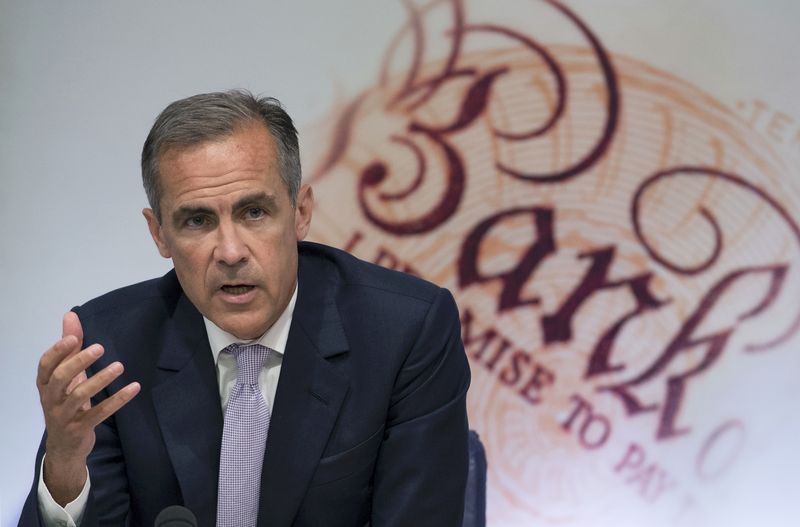* Carney says central banks wrongly blamed for low rates
* Source of low rates "broader" than identified by Trump
* Low-rate "trap" could last decades without economic reform
* UK-based banks could relocate 18 months before hard Brexit (Adds Carney comments on interest rate outlook)
By David Milliken and William Schomberg
LONDON, Nov 15 (Reuters) - Bank of England Governor Mark Carney said verbal attacks by politicians on central banks, such as criticism by U.S. President-elect Donald Trump of the U.S. Federal Reserve, were a "massive blame-deflection exercise".
Carney has faced political heat in Britain for the BoE's low interest rates while Trump, during the U.S. presidential election campaign, accused the Federal Reserve of keeping rates low due to pressure from the Obama administration.
"The President-elect has voiced some views on the Fed and the stance of monetary policy," Carney said in response to questions from members of Britain's parliament on Tuesday.
Carney said it was "very important" to explain that the causes of ultra-low interest rates in Britain and other rich countries went far beyond decisions made by central bankers
"An excessive focus on monetary policy in many respects is a massive blame-deflection exercise," he told a committee in parliament.
Carney has previously said interest rates are low because they reflect weaker demand and investment, a trend that has been developing worldwide since the 1980s due to factors such as globalisation, the impact of technology and ageing populations.
Reversing this long-run trend was not in the BoE's power, Carney said on Tuesday, and he called on governments to step up.
"We could be stuck in this trap, and I use that word advisedly, for decades ... if we don't see major structural reforms," he told lawmakers.
The BoE cut interest rates to a record low of 0.25 percent in August to help the British economy cope with the impact of the decision by voters to leave the European Union in June.
"I WILL LEAVE JUNE 30, 2019"
Carney reiterated on Tuesday that the central bank had a neutral stance on future interest rate moves.
Weak October inflation figures were a blip and the BoE intended to tolerate an overshoot of its 2 percent inflation target as the economy digested sterling's sharp fall since June's Brexit vote, he said. also said he would not consider a further extension of his time in charge of the British central bank, which is now due to end in June 2019.
"I will leave June 30, 2019," Carney said in response to a question during a regular meeting with lawmakers in parliament.
The Canadian said on Oct. 31 that he will stay in his job for an extra year, on top of the five he originally planned to stay in London, to help smooth Britain's departure from the EU, but he will depart two years short of a full term. came under heavy criticism from pro-Brexit politicians for warning before June's EU membership referendum of the economic risks of voting to leave the bloc.
Some British media have speculated that Carney might stay on beyond June 2019 if the government fails to conclude its exit from the EU by that date.
Carney said his decision to extend his time at the BoE by only one year had nothing to do with criticisms made by Prime Minister Theresa May of the "bad side effects" of low rates.
Asked about the impact of Brexit on Britain's banking sector, he said banks may start to relocate operations from Britain 18 months before it leaves the EU if a 'hard Brexit' with poor access to EU markets looked likely.
